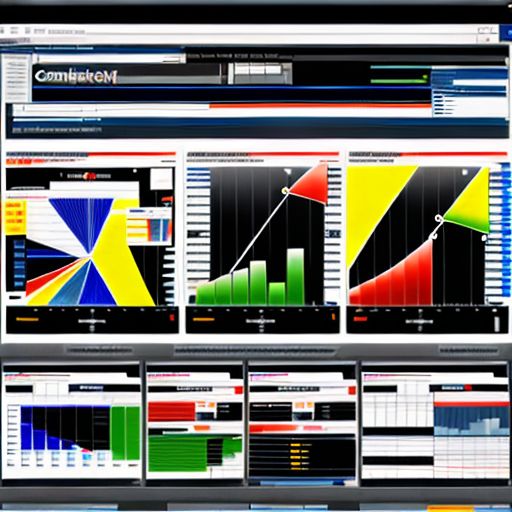In today’s fast-paced construction industry, efficiency and accuracy are paramount to success. Construction projects are becoming increasingly complex, demanding a higher level of organization and control. That’s where Construction ERP software comes in. But what exactly does Construction Erp Software Development entail, and why is it so crucial for your construction business?
Let’s break it down.
Understanding Construction ERP Software
ERP stands for Enterprise Resource Planning. Think of it as the central nervous system of your construction company. Construction ERP software integrates all facets of your business operations into a single, streamlined platform. This includes everything from project management and accounting to human resources and supply chain management.
But it’s not just about bringing everything together. Construction ERP software development goes a step further by creating a system that is specifically tailored to the unique needs and challenges of the construction industry.
erp.backinhtravel.com/wp-content/uploads/2024/07/construction-erp-dashboard-669a55.jpg" alt="Construction ERP Dashboard" width="512" height="512">Construction ERP Dashboard
The Importance of Construction Erp Software Development
So, why is developing a robust construction ERP solution so critical for your business? Let’s explore some key benefits:
1. Enhanced Project Management
- Real-time Project Tracking: Gain a comprehensive view of all your projects, track progress, and identify potential roadblocks before they escalate.
- Improved Collaboration: Facilitate seamless communication between your teams, subcontractors, and clients, ensuring everyone is on the same page.
- Accurate Budgeting and Forecasting: Make informed decisions based on real-time data, minimizing cost overruns and maximizing profitability.
2. Optimized Resource Allocation
- Efficient Resource Management: Allocate your workforce, equipment, and materials effectively, reducing downtime and optimizing utilization.
- Streamlined Procurement: Automate your procurement process, from purchase orders to invoice management, ensuring timely delivery of materials.
3. Enhanced Financial Control
- Automated Accounting Processes: Reduce manual data entry, minimize errors, and improve the accuracy of your financial reports.
- Real-time Financial Insights: Make data-driven decisions and track your financial health with ease.
4. Increased Productivity and Efficiency
- Automated Workflows: Streamline repetitive tasks, freeing up your team to focus on higher-value activities.
- Data-Driven Insights: Gain valuable insights into your operations, identify areas for improvement, and make informed business decisions.
Key Considerations for Construction Erp Software Development
Developing an effective construction ERP solution requires careful planning and execution. Here are some essential factors to keep in mind:
- Scalability: Ensure your chosen solution can grow alongside your business needs.
- Mobile Accessibility: In today’s mobile-first world, your ERP system should be accessible from anywhere, at any time.
- Integration Capabilities: Seamlessly integrate with your existing software systems, such as accounting or CRM platforms.
- Data Security: Protect your sensitive business data with robust security measures.
Conclusion
In a fiercely competitive industry like construction, embracing technology is no longer optional – it’s essential. Construction ERP software development offers a path to streamline your operations, improve collaboration, and gain a competitive edge.
By investing in a tailored ERP solution, you empower your business to make smarter decisions, optimize resources, and drive greater profitability.
Ready to take your construction business to the next level? Contact us today to explore how our construction ERP software solutions can help you achieve your business objectives.
